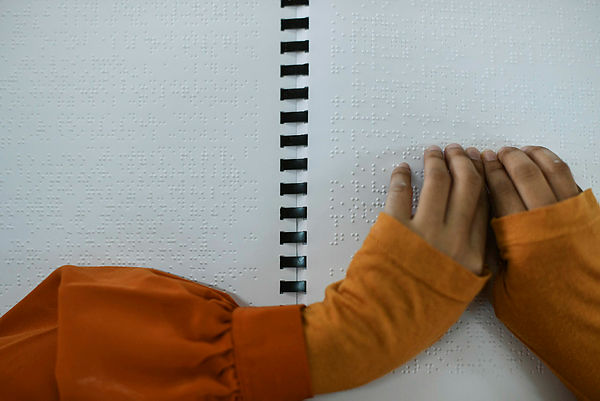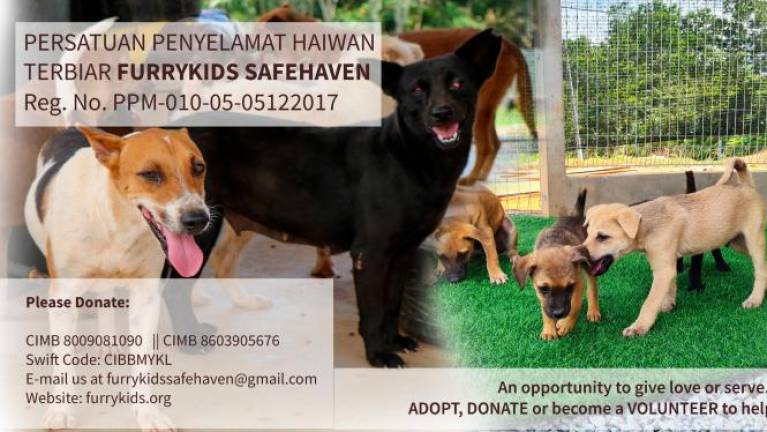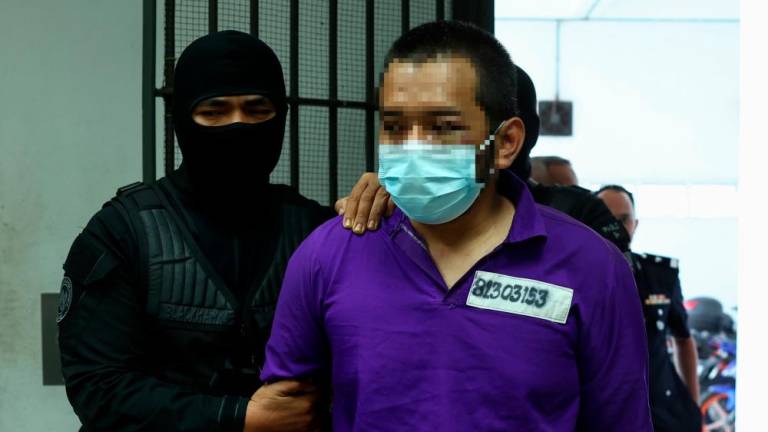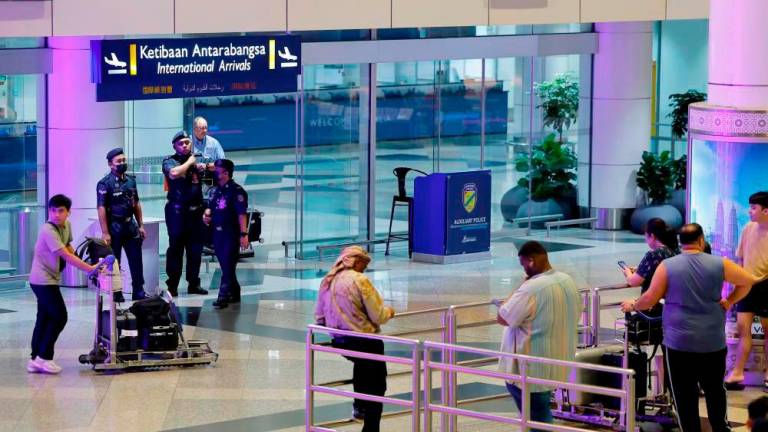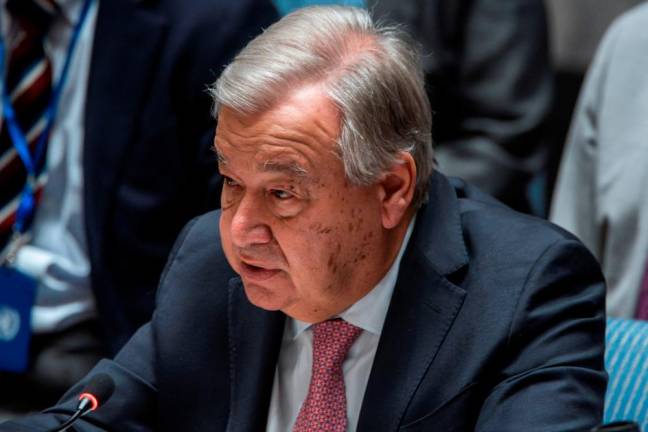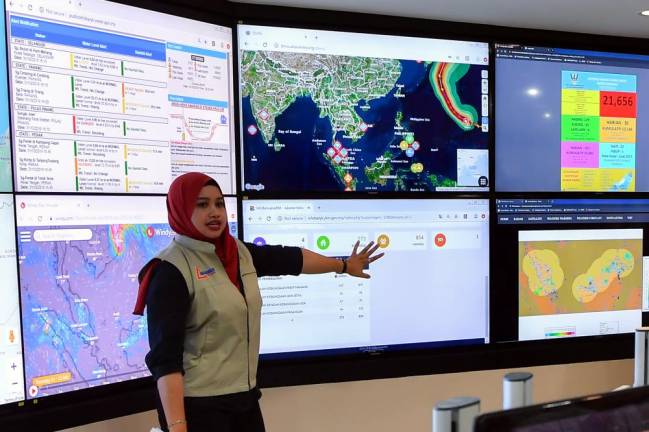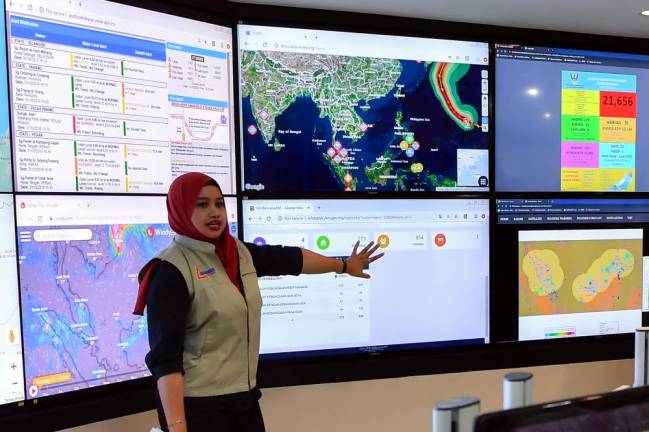KUALA LUMPUR: Many visually-impaired children who attend schools catered for the blind are not getting the books they need on time, compromising their right to quality education.
This was revealed by 15-year-old Hani Nursyahira Muhamat Halis during the Sustainable Development Goals (SDG) Summit Children’s Forum “Welcome to Our 2030” held at Kuala Lumpur Convention Centre recently.
“Some of my blind friends do not even have access to braille books until late in the semester. This makes it difficult for them to get quality education,” she told Bernama in an interview.
The issue was revealed to her by visually-impaired children at the forum, which was attended and run by 50 children aged between 13 and 18 years old from across the country.
The forum focused on five out of 17 SDG goals adopted by the UN member states, namely Goal 1 (No Poverty), Goal 3 (Good Health and Well-being), Goal 4 (Quality Education), Goal 10 (Reducing Inequalities) and Goal 13 (Climate Action).
Bernama checked with several schools for the visually-impaired and received different responses regarding the issue. Some denied it while others refused to comment.
Bernama then contacted KL Braille Resources, a Braille textbook supplier based in the Klang Valley and was told that although there is a shortage of reference books in Braille in Malaysia, that was not the case with textbooks.
“We would get our orders from the (Education) ministry and fulfill them immediately. There is no shortage in Braille textbooks and as far as we know, the orders are delivered to schools on time.
“However, we acknowledge there is a lack of reference books in Braille. This is due to the shortage of experts who can convert conventional texts to Braille. It can be a time-consuming and labour-intensive task as well,” a spokesperson said.
Bernama also contacted the Malaysian Association for the Blind (MAB) to find out if the NGO had received any complaints about schoolchildren not receiving Braille textbooks on time.
“We have not heard of such problems in recent years, but if the issues do exist in certain schools, it is actually understandable. The process of turning regular textbooks into Braille can be highly tedious and time-consuming,” said the association’s CEO, Silatur Rahim Dahman.
He said that if a certain textbook was planned to be used in 2021, Braille book suppliers would have to start working on the copies years earlier so that the students would get them on time.
“It would be best if the (Education) ministry-appointed textbook publishers can provide a softcopy of the textbooks to Braille book publishers. This is so that the latter would not have to manually type out the pages in Braille and can instead expedite the process by sending the soft copy through Braille printers,” he suggested.
Before Braille printers were available, a master copy of regular textbooks would be made by hiring someone to manually type out the text in Braille. Charts, figures and graphs were trickier to reproduce as tactile graphics would have to be recreated using materials like sand, glue, strings and sticks. These would then be turned into Braille books using a thermoform machine.
“This is a laborious process that can add months or years to a book production. Imagine the number of maps, figures and charts in geography, science and mathematics textbooks. Having a soft copy of the textbooks would definitely ease and speed up the entire process,” he explained.
BY CHILDREN, FOR CHILDREN
Meanwhile, Hani Nursyahira called for adults to be more attuned to the needs of children with disabilities and to move quickly to rectify issues hampering their access to better education.
She was part of a group that worked on Goal 4 (Quality Education). Apart from calling for inclusive education for children with disabilities, the group also highlighted issues on education for undocumented children, lack of learning facilities especially for rural communities and leaving school to help parents at home.
Commenting further on the quality of education in Malaysian schools, the student of SMK Sultan Badlishah, Kedah said that today’s education was too exam-based.
“I spend so much time memorising all these information for exams but after that, I find little use for it in daily life.
“We shouldn’t place too much focus on ranking, grades and straight As. We need the kind of education that we can apply in our lives, not during exams,” she opined.
REACHING THEIR PEERS
Some of the children left the forum with a clearer picture of their roles in dealing with the major issues affecting the world.
Fifteen-year-old Somalian refugee Amin Sahal, for example, had little understanding about climate change before the forum.
“I used to hear about it but I didn’t really care. After working on Goal 13 – climate action – I began to realise how real it (the climate crisis) is, so right now I feel that it’s really important that I do something about it,” he told Bernama.
He feels that one of the major ways that he can make a difference is to spread the knowledge and awareness of the issue among his schoolmates.
“As a student you can do this by sharing the knowledge you gained during school assemblies.
“You can also use social media platforms to share videos and pictures (relating to the issue). This is the easiest way to reach as many people as possible,” said Amin, who studies at a community school for refugees in Gombak.
Amin, who comes from a family of seven, is currently living with his mother and three siblings in Malaysia. The rest of his family is still in Somalia.
STRENGTH IN NUMBERS
Meanwhile, 16-year-old Elmus Zechary Tonduyuk Solibun from Sandakan said that his biggest takeaway from the forum was that it was not merely a children’s event.
“We did it with the collaboration of adults from Unicef. What they showed us was that when a small group of children and adults work together to create something good, we can achieve amazing things.
“If a small group was able to achieve something like this, imagine what a bigger group would be capable of,” said Elmus, who was also the president of Malaysia’s Children’s Representative Council (MPKK).
He also came to realise that what was more important than moving forward was getting everyone to move together.
“Because when you fight for the children, you fight with the children and you fight for the future.”
The forum, which is part of the Malaysia SDG Summit 2019, aimed to empower children in solving complex sustainability issues, facilitate understanding and common ground between adults and children and to ignite dialogue between the generations. — Bernama



